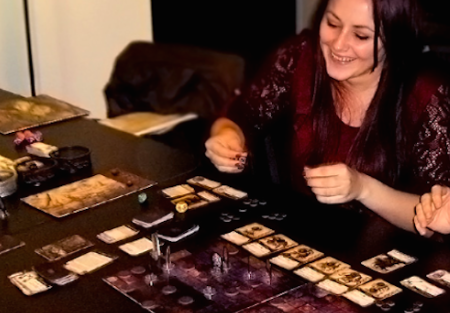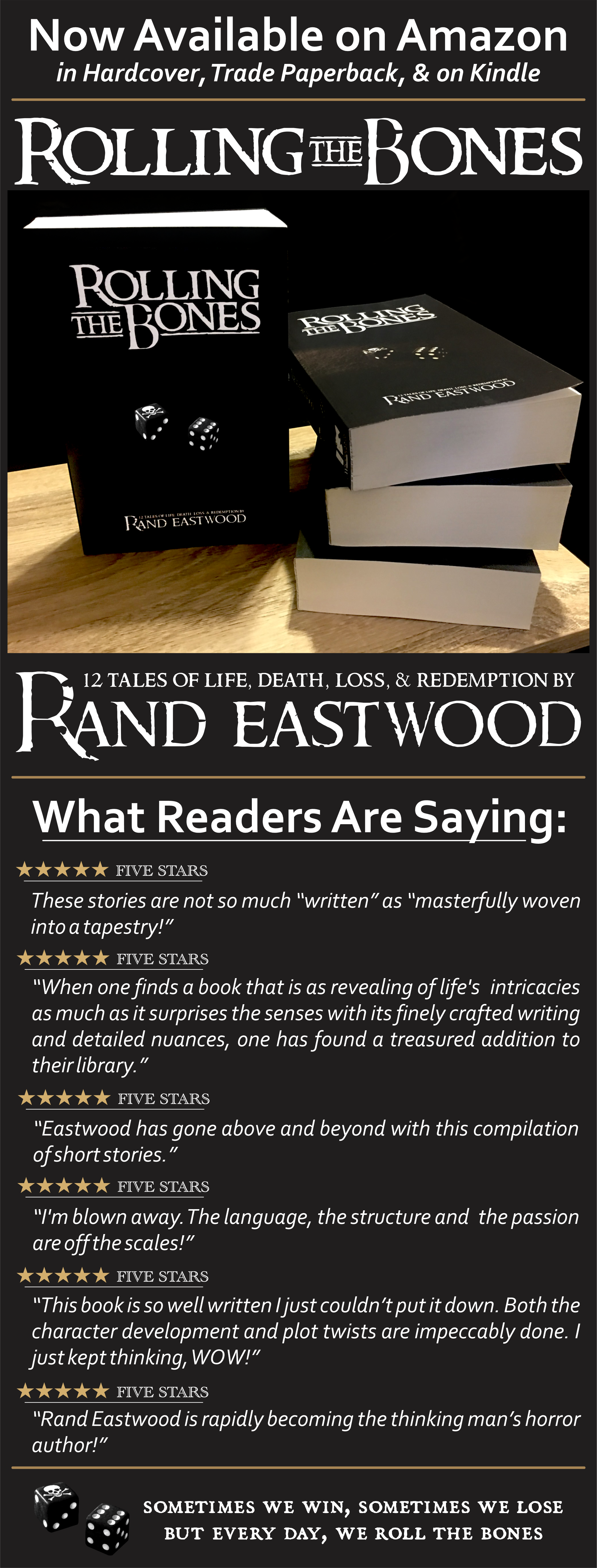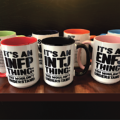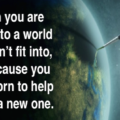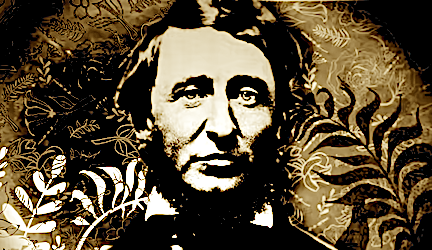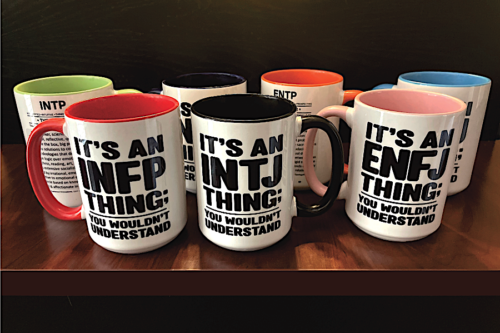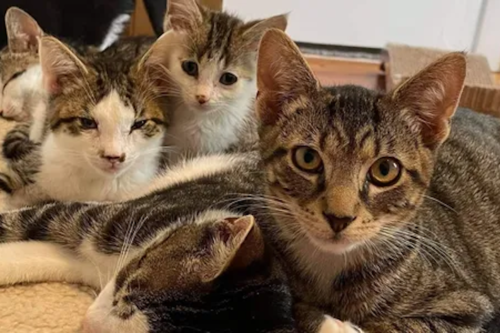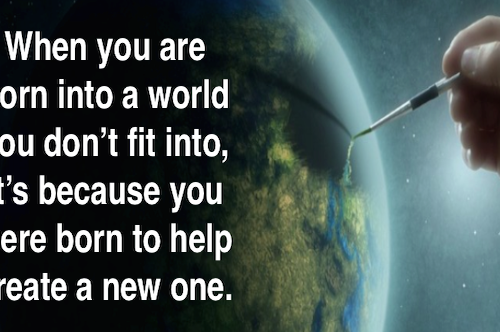An unfortunate paradox that we all face is this: humanity tends to revere non-conformists from the past, but persecute them in the present.
Aldous Huxley said it well:
“The vast majority of human beings dislike and even actually dread all notions with which they are not familiar… Hence it comes about that at their first appearance, innovators have generally been persecuted, and always derided as fools and madmen.”
And in The Intellectual Life, A. G. Sertillanges observes:
“It is an understood thing that great men are not great until after their death. The majority of people do not recognize them.”
And Emerson, in his famous essay Self-Reliance:
“Society everywhere is in conspiracy against the manhood of every one of its members. Society is a joint-stock company, in which the members agree, for the better securing of his bread to each shareholder, to surrender the liberty and culture of the eater. The virtue in most request is conformity. Self-reliance is its aversion. It loves not reality and creators, but names and customs. Whoso would be a man must be a nonconformist. He who would gather immortal palms must not be hindered by the name of goodness, but must explore it it be goodness. Nothing is at last sacred but the integrity of your own mind. Absolve you to yourself, and you shall have the suffrage of the world.”
And consider the words of Indian philosopher, speaker, writer, and spiritual leader Jiddu Krishnamurti:
“Society does not want individuals who are alert, keen, revolutionary, because such individuals will not fit into the established social pattern and they may break it up. That is why society seeks to hold your mind in its pattern, and why your so-called education encourages you to imitate, to follow, to conform.”
And renowned psychologist Rollo May wrote in his book The Courage to Create:
“Many people feel they are powerless to do anything effective with their lives. It takes courage to break out of the settled mold, but most find conformity more comfortable. This is why the opposite of courage in our society is not cowardice, it’s conformity.”
And finally, consider this passage from British author Doris Lessing, from her book Prisons We Choose To Live Inside:
“A few months after the start of the miner’s strike in Britain, in 1984, just when it was moving into its second, more violent phase, a miner’s wife came on television to tell her story. Her husband had been on strike for months and they had no money. While he supported the union, and agreed there should have been a strike, he thought Arthur Scargill had led the strike badly. Anyway, along with a minority, he had gone back to work. A gang of miners had broken this couple’s windows, smashed up the inside of their house, and beaten up the man. The woman said she knew who these men were. It was a very tight community, she said. She recognized them. They were friends. She was stunned and bewildered. She could not believe that decent mining folk could have done such a thing. She said that one of these men who had been in the gang greeted her when he was alone, “just as he always had done,” but when he was with his friends, she was invisible to him.
She simply could not understand it, she said. But I think—and this is absolutely my point—that not only should she have understood it, she should have expected it; that we should all understand and expect these things, and build what we know from history and from the laws of society we already have into how to structure our institutions.
Of course it may be argued that this is a fairly bleak view of life. It means, for instance, that we can stand in a room full of dear friends, knowing that nine-tenths of them, if the pack demands it, will become our enemies—will, as it were, throw stones through our windows. It means that if you are a member of a close-knit community, you know you differ from this community’s ideas at the risk of being seen as a no-goodnik, a criminal, an evil-doer. This is an absolutely automatic process; nearly everyone in such situations behaves automatically.
But there is always the minority who do not, and it seems to me that our future, the future of everybody, depends on this minority. And that we should be thinking of ways to educate our children to strengthen this minority and not, as we mostly do now, to revere the pack.”
Yes, humanity fears innovation and loves conformity: praising those who best follow the rules, who sit quietly and don’t rock the boat; holding up those who are deemed the finest examples of mediocrity and familiarity and obedient compliance, imploring all to observe, to model; equally rewarding all who participate in a competition, rather than those who perform the best.
The list goes on and on.
Yet, these are not the characteristics of those whom we remember, revere, praise, honor, or model from history. The great individuals who moved humanity forward—those who discovered new things, tried new ideas, worked and experimented and succeeded, solved problems, invented things, bucked the status quo and forged ahead—regardless of the persecution dolled out by society during their particular era—were not conformists. They were, in fact, non-conformists. Rule-breakers. Self-thinkers. Mavericks.
Artists.
And everyone is an artist, or artisan, of some descript, whether or not the work they do fits into any of the categories which are traditionally classified as “art.” Whenever anyone creates or produces something of value, does something unique, imagines something in their mind and makes it happen, makes it real, makes it tangible in the world—regardless of what it is—then, they are indeed making art.
Thus, they are, in fact, artists. We all are, in own ways.
But if we pursue our art—our ideas, our visions, our uniqueness—in a world that demands conformity, we will likely be shunned, persecuted, and even prosecuted by others who fear us, fear what we are doing, fear change, fear the unknown—be they family, friends, co-workers, the community, the state.
But nevertheless, individuals must push forward, perceive, if for nothing else than the sake of societal progress—or even mankind’s very survival.
Here, the profound quote by the venerable Butler Shaffer comes to mind:
“Civilizations are created by individuals; they are destroyed by collectives.”
And again, from Doris Lessing:
“Does everything always have to be so predictable? Do people really have to be such sheep? Of course, there are original minds, people who do take their own line, who do not fall victim to the need to say, or do, what everyone else does. But they are few. Very few. On them depends the health, the vitality of all our institutions.”
“It is my belief that it is always the individual, in the long run, who will set the tone, provide the real development in a society.”
On the other hand, we can scarcely blame ourselves, or humanity at large, for the aforementioned paradox; for it is, quite innocently, a product of evolution—of our natural instinct to fear change, to fear the unknown. Back in the earliest days of mankind, the hunter-gatherers, living in caves or dwelling in small tribal villages—back before the advent of technology or the conveniences of advanced civilization—if one returned home from hunting or fishing, gathering food, fetching water, or whatever, and noticed something amiss—something different, something changed, something unfamiliar—then chances were very high that you were about to be eaten by a wild animal or attacked by warriors of another tribe.
(Let alone actually coming across a stranger—someone not of your own clan or tribe—this would most likely signal imminent danger!)
As a result, back in the beginning stages of mankind, we learned that change or unfamiliarity = danger. It’s hard-wired into our genetic code, into our instinctive lizard brains. And fear of change, fear of the unknown, still drives man’s actions to this day, and it is as natural as any other animal instinct. It takes a phenomenal amount of rational thought and forced action to override this instinct and instead embrace change, embrace the unknown, in order to move our lives—and collectively, humanity—forward.
And forward means, inevitably, into the unknown—which always invokes fear.
But alas, hindsight is indeed 20/20; once the heretics of history finally bring about the positive changes they envision, pursue their new and different ideas, invent the new things, create the new solutions, forge the new paths, and time eventually proves these advents to be superior and beneficial to all—then mankind eventually embraces them, and to this day reveres their creators, their visionaries.
But until then, humanity fears these heretics, despises them, persecutes them, even prosecutes and/or executes them. Fear of change and fear of the unknown still rule the day, even in our evolved brains, just as the line in the song Witch Hunt (RUSH | Moving Pictures) states:
Quick to judge, quick to anger / but slow to understand
ignorance and prejudice / and fear go hand in hand
But today, living in modern society, we no longer face many of the prevalent dangers of the past; change no longer necessarily signals threat or imminent danger. Thus, we now have a choice:
1) Fit in, conform, take the path of least resistance, embrace the status quo and never contribute anything new to the equation, simply mire ourselves in the mediocracy of mainstream society, and play it safe—or:
2) Refuse to conform, refuse to participate in mass mediocrity, and instead strike out from the norm and pursue our own ideas, our passions, our visions….our art.
In Neil Gaiman‘s commencement address to the 2012 graduating class of the University of the Arts in Philadelphia, the successful author and prolific writer imparts his experience and wisdom on the new graduates, who will likely soon be embarking on a career in the arts. One of the very first ideas he touches upon is that of non-conformity, reveling in the fact that these young, fresh graduates will enter their fields completely ignorant of the established rules, and therefore have the freedom to experiment with their own ideas and styles:
“When you start out on a career in the arts, you have no idea what you’re doing. This is great; people who know what they’re doing know the rules, and they know what is possible and what is impossible—you do not, and you should not. The rules on what is possible and impossible in the arts were made by people who had not tested the bounds of the possible by going beyond them—and you can. If you don’t know it’s impossible, it’s easier to do. And because nobody’s done it before, they haven’t made up rules to keep anyone from doing that particular thing again.”
He also mentions that he “learned to write by writing.” In my own life, I’ve adopted a mantra by which I now allow myself to fearlessly (or at least less fearlessly) try new things, explore new things, experiment with new things, and learn new things: Learn by doing.
This, of course, also means not allowing the fear of making mistakes, the fear of failure, to stop me, to dictate my decisions and actions; understanding that mistakes and failure are part of the learning process, a requisite component of doing, gives me the strength and courage to forge ahead into the unknown.
In his address, Gaiman also touches on the idea of risking failure:
“When you start out, you have to deal with the problems of failure. You need to be thick-skinned, to learn that not every project will survive. A freelance life, a life in the arts, is sometimes like putting messages in bottles on a desert island and hoping that someone will find one of your bottles, and open it, and read it—and put something in a bottle that will wash its way back to you: appreciation, or a commission, or money, or love. And you have to accept that you may put out hundreds of things for every bottle that winds up coming back. The problems of failure are problems of discouragement, of hopelessness, of hunger. You want everything to happen and you want it now and things go wrong.”
He goes on to talk about developing proper motivation for his work, which helped him to better handle failure:
“…I decided that I’d do my best in the future not to write books just for the money…if you didn’t get the money, then you didn’t have anything; and if I did work I was proud of, and I didn’t get the money—at least I’d have the work. Every now and then, I’d forget that rule; and whenever I do, the Universe kicks me hard, and reminds me. I don’t know that it’s an issue for anybody but me, but it’s true that nothing I did, where the only reason for doing it was the money, was ever worth it—except as bitter experience (usually, I didn’t wind up getting the money, either). The things I did because I was excited, and wanted to see them exist in reality, have never let me down—and I’ve never regretted the time I spent on any of them.”
And finally, about making mistakes, or failing, he encourages the graduates, saying, “If you make mistakes, that means you’re out there doing something,” which is a slight variation of the oft-quoted adage, originally attributed to Hall of Fame basketball player/coach John Wooden: “If you’re not making mistakes, you’re not doing anything.”
And finally, he summarize his entire speech:
“And now go, and make interesting mistakes. Make amazing mistakes. Make glorious and fantastic mistakes. Break rules. Leave the world more interesting for your being here. Make. Good. Art.”
Here’s his entire address:
Also, J. K. Rowling, in her commencement address to the 2008 graduating class of Harvard University, conveys the idea that she was a non-conformist, evidenced by her shunning of her college curriculum in order to focus instead on her passion:
“Looking back at the twenty-one-year-old that I was at graduation is a slightly uncomfortable experience for the forty-two-year-old that she has become. Half my lifetime ago, I was striking an uneasy balance between the ambition I had for myself, and what those closest to me expected of me. I was convinced that the only thing I wanted to do—ever—was write novels; however, my parents—both of whom came from impoverished backgrounds, and neither of whom had been to college—took the view that my over-active imagination was an amusing personal quirk that would never pay a mortgage or secure a pension…so they hoped I would take a vocational degree. I wanted to study English Literature. A compromise was reached—that, in retrospect, satisfied nobody—and I went up to study Modern Languages. Hardly had my parents’ car rounded the corner at the end of the road, then I ditched German, and scuttled off down the classics corridor. I cannot remember telling my parents that I’m studying classics; they might well have found out for the first time on graduation day. Of all the subjects on this planet, I think they would have been hard-put to name one less useful than Greek Mythology when it came to securing the keys to an executive bathroom.”
She also discusses fear—primarily, fear of failure—and how her own experience of failure was the impetus that pushed her forward to finally accepting herself (what I like to refer to as our authentic self) and embracing her art, which simply cannot be done while conforming to the expectations and standards of our family and friends, our respected institutions, or society at large:
“Ultimately, we all have to decide for ourselves what constitutes failure. But the world is quite eager to give you a set of criteria, if you let it. So I think it fair to say: by any conventional measure, a mere seven years after my graduation day, I had failed—on an epic scale. An exceptionally short-lived marriage had imploded, and I was jobless, a lone parent, and as poor as it is possible to be in modern Britain without being homeless. The fears that my parents had had for me—and that I had had for myself—had both come to pass; and by every usual standard, I was the biggest failure I knew. Now, I’m not going to stand here and tell you that failure is fun; that period of my life was a dark one, and I had no idea that there was going to be what the press has since represented as a kind of “fairy-tale” resolution. I had no idea then how far the tunnel extended—and for a long time, any light at the end of it was a hope, rather than a reality.”
“So why do I talk about the benefits of failure? Simply because failure meant a stripping away of the inessential; I stopped pretending to myself that I was anything other than what I was, and I began to direct all my energy into finishing the only work that mattered to me. Had I really succeeded at anything else, I might never have found the determination to succeed in the one arena where I believed I truly belonged. I was set free, because my greatest fear had been realized, and I was still alive, and I still had a daughter whom I adored, and I had an old typewriter, and a big idea.”
She then summarizes:
“Rock-bottom became the solid foundation on which I rebuilt my life.”
And even as an author, she did not conform to industry standards; she did not write stories about the next killer virus, or of zombies, or vampires, or any of the various other popular fiction topic du juor; instead, she had a unique idea, a grand idea, and—with nothing to lose at that point in her life—began writing the legendary Harry Potter series…and subsequently became the best-selling novelist in history.
Here’s her entire address:
When it comes to non-conformity and failure, we can look at several other people who have risked non-conformity, embraced failure, and as a result become phenomenally successful, even cultural icons:
Steve Jobs dropped out of college, yet stayed as a “drop-in”, dropping all the required classes and only taking the ones he was genuinely interested in. Then he started Apple Computers—and ten years later was fired from the company. In order to continue pursuing his art, what he loved to do, he started Next, and Pixar—which created the world’s first computer-animated feature film, Toy Story, and went on to become the most successful animation studio in the word. Then, almost astonishingly, Apple happened to purchase Next—and Jobs returned to Apple, guiding it to become one of the world’s most successful companies.
Michael Jordan certainly didn’t become the greatest basketball player on the planet by conforming to tradition, and playing like everyone else did; he developed his own style, proving his superior techniques on the court. And it wasn’t long before everyone wanted to be “like Mike.” And as far as failure goes, many people know that he holds the NBA record for the most last-second shots made to win the game—but how many people know that he also holds the record for the most last-second shots missed, to lose the game?
It is said that the legendary Eddie Van Halen constantly got rebuked by his guitar instructor for using “improper technique”. His response: “Yeah—but how does it sound?” He went on to become one of the greatest and most influential rock guitarists of the 20th century, with Rolling Stone magazine ranking him number eight in the list of the 100 Greatest Guitarists, and he was also voted number one in a Guitar World magazine reader’s poll of “The 100 Greatest Guitarists of All Time”.
Then, of course, there’s the age-old example of Thomas Edison, who failed 1,000 times before successfully creating the incandescent light bulb.
The saying is true: If you aren’t failing at anything, you aren’t trying anything.
And, since you can fail doing something you don’t love—why not risk doing something you love?
Jim Carrey, in his commencement address to the 2014 graduating class of Maharishi University of Management, touched on this:
“My father could have been a great comedian, but he didn’t believe that that was possible for him; and so he made a conservative choice: instead, he got a safe job as an accountant. And when I was twelve years old, he was let go from that safe job, and our family had to do whatever we could to survive. I learned many great lessons from my father, not the least of which is that you can fail at what you don’t want—so you might as well take a chance on doing what you love.”
Here’s his entire address:
And when considering your own style, your own path, your own attempt at non-conformity, and are worried about whether your work will be accepted, whether or not you are bound to fail, you can always simply take the advice of actor/comedian Steve Martin, who developed his own style of stand-up comedy and achieved phenomenal success doing so:
“Be so good they can’t ignore you.”
So, as you can see, achievement and success for yourself—and, in many cases, for humanity at large—depends upon your being a defiant non-conformist, and unafraid of failure. You must shuck the many layers of false identity that society foists upon you from the day you are born, disregard the standards and customs and rules of the day, embrace your authentic self and your natural passions and talents, and forge ahead in your own way, the only way that works for you.
And by understanding that failing is part of the learning process—a required element of doing—you can forge onward a little more confidently.
Yes, you will be persecuted for your heresy, be it by family, friends, neighbors, your spouse, your boss/co-workers, teachers/fellow students, the church, or even society at large, including the government or other institutions of “authority”—as history has aptly demonstrated time and again—but in the event that you succeed, not only will you reap the rewards for your effort, courage, and non-conformity—but so too will the rest of the world, the entirety of humanity, for all of time to come.
So go; risk non-conformity, embrace failure, and most importantly:
Make good art.
Like/Follow Lifeology Blog on Facebook • View Rand’s Books on Amazon
Visit Lifeology Store • Like/Follow Lifeology Store on Facebook
A Note To Readers:
If you found this article (or any of the others, for that matter) interesting, informative, entertaining, etc., please consider subscribing to the Lifeology email newsletter: simply enter your email into the form below (also in the right sidebar)—or, if you prefer, just use this simple quick sign-up form.
↓↓↓ Also, please hit the “Like” (thumbs up) button below. Thanks! ~ Rand


